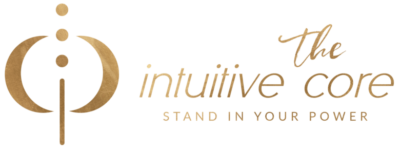I’m a Driver. A person conditioned by my culture to strive.
Set goals. Work hard. Be persistent. Put my head down. Push through. Onward and upward. Green light. Go go go.
Sound familiar?
Many of us are stuck in a pattern of high-octane striving — pushing our limits at work, home and play. That would be ok, except when we do all three at the same time without stepping off the speeding treadmill of achieving.
It used to be that the word “over-achiever” was a kind of compliment. Now it’s more closely linked to “burn out”. And yet — a lot of people tell me they can’t stop themselves. It’s more than a habit — it’s an addiction to Stress.
Would you believe me if I told you there was a way to still achieve your goals without the pressure, stress, and constant striving?
Lots of motivational speakers jump around stage and tell you. They publish books like ‘The Four Hour Work Week’ and talk about making millions without effort.
But that’s just too big of a stretch for most of us — so we go with what we know. Work hard, play hard and just suck it up.
I’m not advocating laziness, or taking your foot off the accelerator completely. What I’m suggesting is that you stop bushwhacking straight up the mountain all the time. Stop making things more complicated than they need to be.
I used to do that all the time. My brain wanted so much to be smart, clever, useful — and it would make Big Plans. And guess what? Sometimes those plans worked, and sometimes they didn’t. And in both cases I had lots of stress and a huge output of energy.
It’s taken me a while to realize that things don’t have to be hard to be successful. They don’t have to be stressful to be earned.
A lot of the conditioning around achievement is wrapped up in the idea that if it wasn’t hard work, we didn’t earn it.
But let’s stop and look at that assumption. It’s absurd really. What about when things line up and everything flows together nicely? We have earned that too.
By asking myself the simple question, “What would this look like if it were easy?” I have learned to by-pass my very clever Brain. And in the process things have actually gotten easier.
I conserve so much energy with that one question.
Less worry. Less stress. Less push.
Instead… More allowing. More surrendering. More effectiveness.
When I stopped pushing and driving I had space to observe and reflect. With a pause, I had a small space to notice how I could switch from over-drive to cruise control. With that pause, I could easily see solutions that were more effective and less complicated.
I guess it’s like keeping a muscle contracted all the time. It leads to a cramp.
If our minds and hearts can be seen as muscles, it’s easy to realize that a cramped mind doesn’t see simple solutions and a cramped heart is stressed and less forgiving. It’s less forgiving of mistakes and misunderstandings.
I know it’s not so easy to just switch on the “go with the flow” mode. It’s a habit — for some a mindset. But if you notice a constant tension, either manifesting in actual headaches, or in mediocre performance, maybe it’s time to consider switching to a lower gear.
How, you ask?
Why not do a series of small experiments? Try these:
- Ball up your fist and squeeze as hard as you can for 30 seconds. Notice what happens in your hand, fist, arm, chest, and head. Then let go. Notice what happens.
- Grab a pen and hold it as tightly as you can while writing the word “Supercalafragalisticexpialidotious”. How far did you get? What did you notice in your fingers, hand, arm, head? How long did it take you to write the word? Then hold the pen lightly, relaxed and try the same word. What happens?
Most people experience some sort of energy dip after the first part and an energy increase or ease in the second. Some people notice that they actually wrote faster while relaxed.
I know this is super simple stuff — but feeling the ease in our bodies is the first step to convincing our minds that it’s worth a try.
Next experiment. Think about a challenge that has been taking up your mental bandwidth. Something you sense tightness or tiredness around. Consciously, intentionally relax your mind (take a big breath and let it out — which helps). Then ask yourself, “What would this look like if it were easy?” Notice what emerges.
Go ahead — try it now. Reading this can wait…
So, probably the first solutions were not very realistic, but just the simple act of playing with ideas will eventually create an opening for an easier solution.
And in any case, it will release the constant contraction of a over-working, very clever Brain — and allow space in for some ease.
Now — what about the heart? What about finding more space to relax and allow it to let go? What would happen if you let go of certain expectations of a person, or yourself? Just relaxed into neutral.
Again, you might notice that you feel less emotional or fatigued — and perhaps more clear headed about what to do.
There’s no reason to grasp and push and strive all the time. It’s a huge energy leak. Instead, let’s allow things to be easier.
It’s worth a try. Several tries. Eventually, you’ll notice that things actually take you less energy and get done faster and more efficiently.
“Tension is who you think you should be, relaxation is who you are.”

